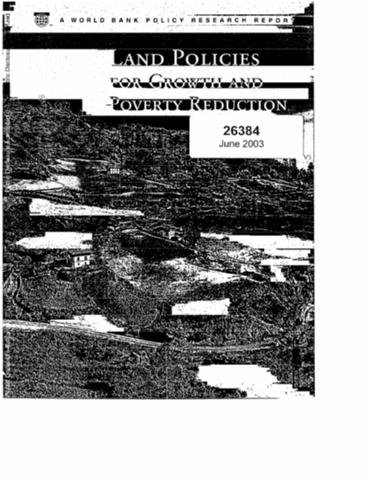Models for recognising indigenous land rights in Latin America
This paper discusses issues surrounding indigenous land rights, sharing an understanding and information about land tenure and titling within Latin America. The study focuses on examples from the country level, with the aim of influencing policy coherence and legislation.In particular, Chapter four of this document examines the implications of indigenous land tenure for natural resource management, using case studies from Colombia, Costa Rica, Panama and Peru.






